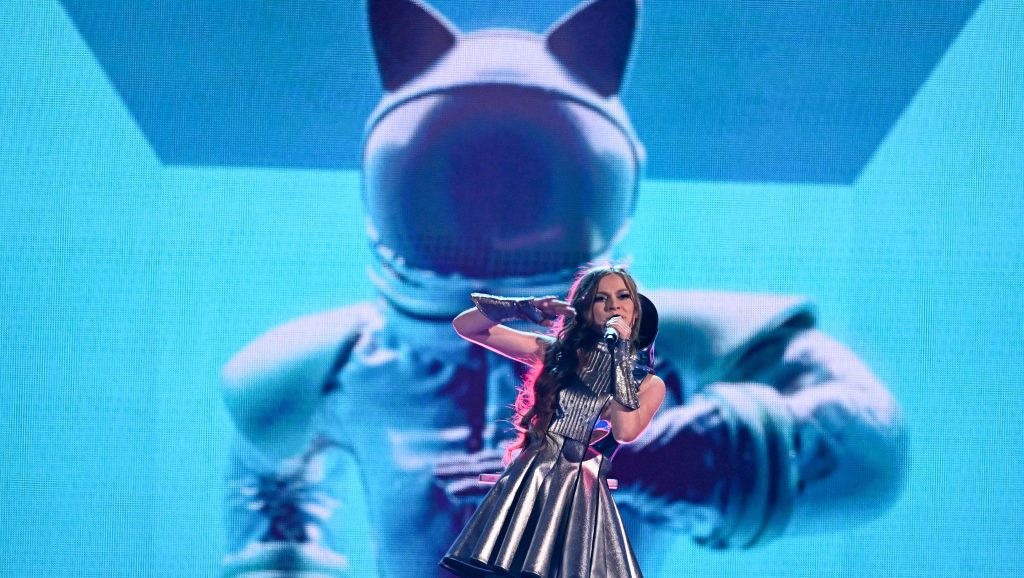Ireland will not participate in the Eurovision Song Contest next year if Israel is permitted to compete, the country’s public broadcaster RTÉ has announced.
In a statement released Thursday, RTÉ said that participating “would be unconscionable given the ongoing and appalling loss of lives in Gaza.” Spain, Slovenia and Iceland have made similar statements.
RTÉ said it was “deeply concerned by the targeted killing of journalists in Gaza, and the denial of access to international journalists to the territory, and the plight of the remaining hostages.”
RTÉ plans to make a final decision on whether it will withdraw once Eurovision’s organizer, the European Broadcasting Union, decides if Israel can participate. It added that “a number of EBU members” had “raised concerns” about the issue during the group’s General Assembly meeting in July.
“It is RTÉ’s position that Ireland will not take part in the 2026 Eurovision Song Contest if the participation of Israel goes ahead, and the final decision regarding Ireland’s participation will be made once the EBU’s decision is made,” the network said in its statement.
RTÉ is led by Kevin Bakhurst, the former BBC News controller and Director General of British media regulator Ofcom. We have asked the BBC whether it would similarly boycott Eurovision 2026 if Israel competed.
Ireland is not the first European country to threaten withdrawal over Israel’s participation in the event, with similar declarations coming from Iceland, Spain and Slovenia.
Local Icelandic media reported that Stefán Eiríksson, Director General of public broadcaster RÚV, said: “It is likely that if there is no change in EBU’s position and it does not respond to these voices of concern coming from us, from Spain and Slovenia and others, then that will call for reactions from these broadcasters. But let’s just wait and see.”
The end of the EBU’s consultation period is in November or December and a decision on Israel’s participation will closely follow. Israel has competed in Eurovision 47 times despite not technically being in Europe, and has won four times, most recently in 2018.
“We understand the concerns and deeply held views around the ongoing conflict in the Middle East. We are still consulting with all EBU members to gather views on how we manage participation and geopolitical tensions around the Eurovision Song Contest,” said Martin Green, Director of the Eurovision Song Contest.
“Broadcasters have until mid-December to confirm if they wish to take part in next year’s event in Vienna. It is up to each member to decide if they want to take part in the Contest and we would respect any decision broadcasters make,” he added.
Since the bombings in Gaza began, Israel’s participation has caused fractures. In 2024, its entrant, Eden Golan, finished fifth and received large public vote support but was booed on stage and even received death threats.
RELATED: Switzerland Wins Eurovision Song Contest; Israel Places Fifth Amid Protests And Controversy
Earlier this year, thousands of pro-Palestinian demonstrators gathered outside the Eurovision venue in Malmö, Sweden, in protest over Israel’s inclusion. The country’s entrant, Yuval Raphael, who survived the massacre at the Nova festival on October 7, said she had practiced rehearsing with booing sounds. She finished second.
The storm comes in another devastating week in the Middle East. Qatari Prime Minister Mohammed bin Abdulrahman bin Jassim al-Thani has accused Israel of “state terrorism” after an Israeli airstrike on Hamas ceasefire negotiators in Qatar killed six people. The dead included a Qatari security official.
Israel’s Prime Minister, Benjamin Netanyahu, claims the attack was “fully justified” as it targeted Hamas leaders who were behind the October 7, 2023, massacre that left nearly 1,200 dead, thousands more injured and more than 250 taken hostage. In retaliation, Israel began a bombing campaign in Gaza, which has killed more than 60,000 people, according to Palestinian health authorities.

